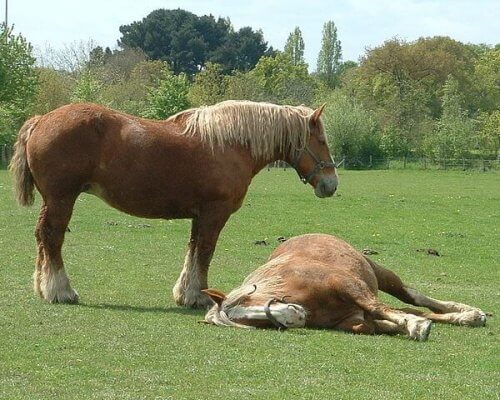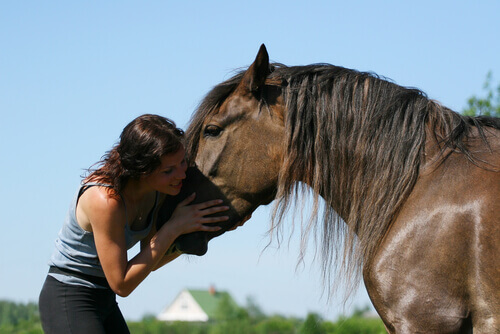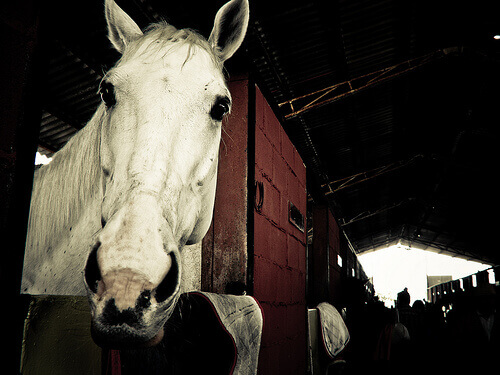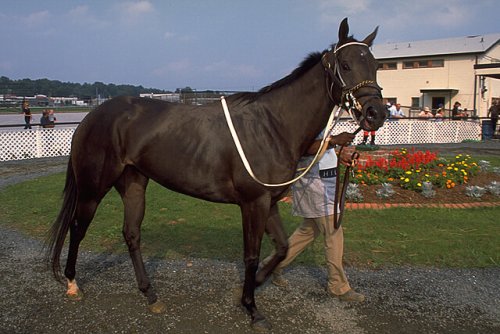Colic in Horses: Causes, Symptoms and Treatment

Colic in horses , also known as acute abdomen syndrome, is a very common disease that concerns many horse owners. Knowing when the animal is suffering from it, and how to remedy it, is vital for its survival.
What is colic in horses?
Equine colic is an acute pain that causes seizures in the stomach and intestines, which creates severe discomfort in the animal. If it’s not treated quickly, the animal could die .
So much damage can be done to it, and so quickly, that it’s treated as a veterinary emergency. So, n ow we know what can happen, let’s see what the most common causes of colic in horses are.

Causes
It’s said that colic in horses is more a syndrome than a diagnosis itself. This includes many diseases of the digestive or intestinal tract. However, the main known causes are:
- Diet. All extremes are bad, and an excessive or poor diet is the main cause of colic in horses. It might also be that you are giving your horse more nutrients than it needs, which provide energy or protein in higher amounts than required.
- Water. Depending on where you live, water may be the cause. Hard water, with high lime scale content, or even water contaminated with amoebas, can cause colic in horses. You may also be giving your horse less water than it needs.
- Parasites. Parasites are a common problem and the main cause of colic in horses. They’re something that can’t be avoided, as horses could easily have an intestinal parasite. This is why deworming is so important.
Symptoms
So that you can act quickly, you need to know what the symptoms of colic in horses are. Although this syndrome has a high mortality rate, it can be alleviated by acting fast. Most colic deaths happen because the owners of the horses haven’t acted with enough haste to one or more symptoms.

- Strange behavior. If your horse has moments when it behaves strangely like rolling on the ground or spinning around, this could be an unequivocal symptom of colic in horses.
- There will be other changes, such as wanting to urinate more than usual or lying down longer than normal.
- If colic in horses is more severe, the signs will be more obvious. For example, they may have seizures due to pain. The horse might throw itself on the ground and make abrupt movements as a way of calming its pain.
- Breathing: Breathing will become more accelerated, to the point where the horse thinks it’s drowning. It will also sweat a lot, perhaps a symptom of a high fever.
Treatment of colic in horses
If you think your horse has colic, walk with it. This isn’t a cure, but it’ll distract them and prevent them from thrashing on the ground causing intestinal torsion.

Because of their physical complexion, horses can’t vomit. There is a risk of death from colic. The stomach grows and can burst inside the animal. Therefore, walking will prevent them from being hurt and give you time to take it to the veterinarian, who will administer pain relief.
Mineral oil will be given through a tube to lubricate the digestive system and as a laxative for the animal to expel everything that causes damage. The horse won’t need to eat until the vet gives their approval.
The best thing for colic in horses is to prevent it. Therefore, watch your animal and everything it eats, as well as any changes in its behavior. Animals are always a responsibility.
https://myanimals.com/es/colico-caballos-causas-sintomas-tratamiento/